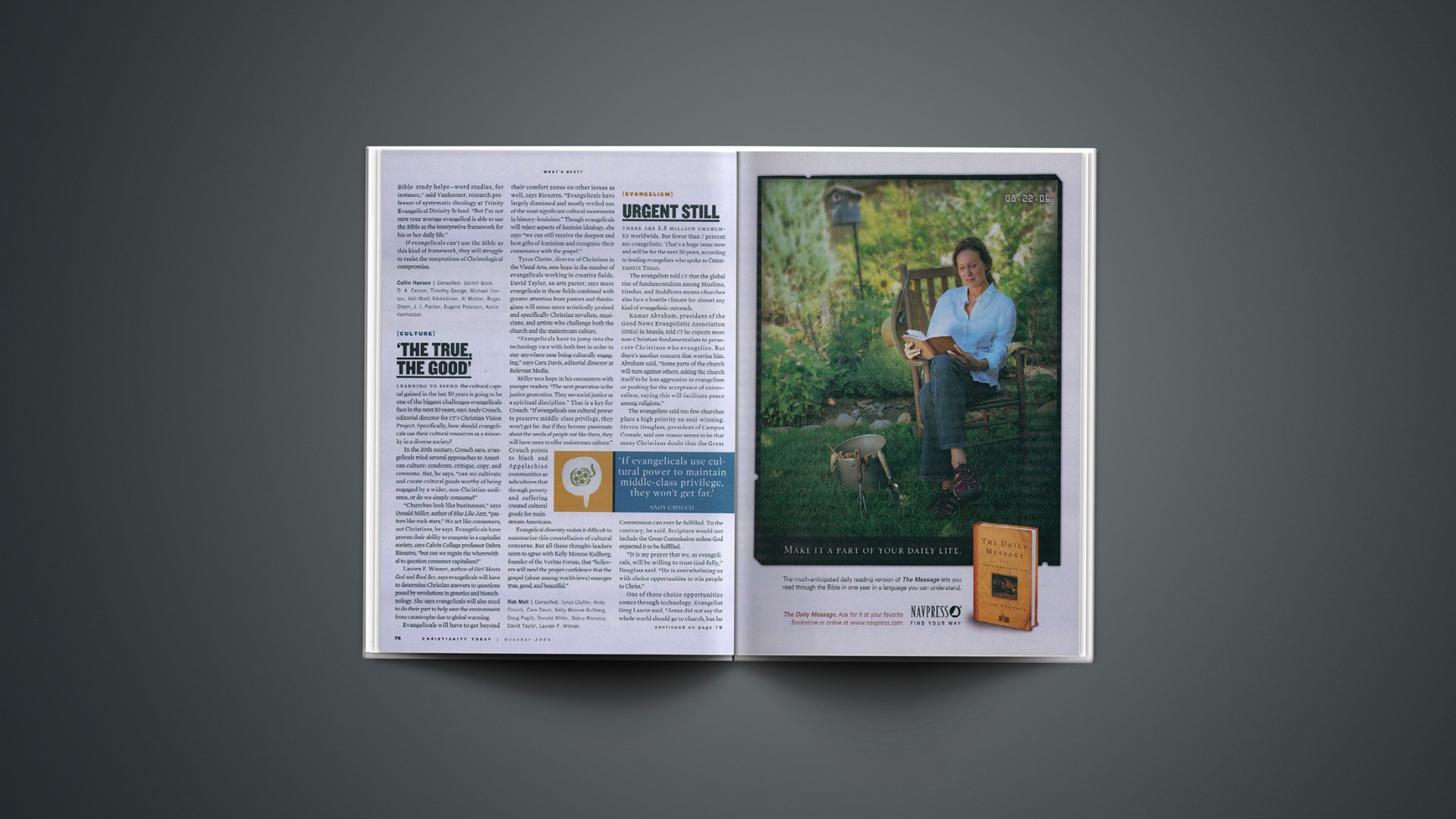We’ve asked 114 leaders from 11 ministry spheres about evangelical priorities for the next 50 years. Here’s what they said about higher education.
When he wrote The Scandal of the Evangelical Mind (1994), Mark Noll said, “Evangelicals sponsor dozens of theological seminaries, scores of colleges, hundreds of radio stations, and thousands of unbelievably diverse parachurch agencies, but not a single research university.”
“We still don’t have a full-blown graduate system to produce Ph.D.s for the Christian college movement,” says Jerry Cain, president of Judson College. “Many of our Ph.D.s still have to come from the secular environment and thus they come into a Christian college environment with very few examples of how to be a Christian professor on a graduate level.”
As a result, says Union University president David Dockery, Christian higher education’s “biggest challenge is to take a Christian who has been educated in a thoroughly secular context and invite that person to teach on your faculty. It is almost a re-education process for new faculty members.”
Building a large-scale mentorship system will help, says former Calvin College provost Joel Carpenter, who says that changing colleges into universities isn’t necessarily a panacea. Many Christian schools have recently been adding master’s programs so that they can call themselves universities, but “they tend not to be based so much on disciplined inquiry into theory and into philosophical, theological underpinnings. They are more about what is good professional practice.”
But if there is to be an evangelical graduate university with deep commitments to both Christian faith and intense scholarship, it probably won’t be built by the denominations that have produced so many Christian colleges.
“In this post-denominational age, schools will not be able to identify themselves correctly as Presbyterian or Lutheran,” says Cain, whose school is associated with the American Baptist Churches usa. “Their denominations will have less financial wherewithal to support them, so they are going to have to figure out how to identify themselves apart from a denominational constituency.”
That means the future of evangelical higher education will largely be written on the lines of individual wealthy donors’ checks. That could breed competition, leading to greater educational diversity even as denominational influence shrinks. “After a point, you have to have some kind of identity in order to reach the people and give them a reason to give you money,” says Gene Edward Veith, academic dean of Patrick Henry College. “The colleges that will thrive the most will be ones that have a distinctiveness about them.”
Ted Olsen and Jason Bailey | Consulted: Duane Litfin, David Dockery, Gene Veith, David Lyle Jeffrey, James Emery White, Jerry Cain, Jud Carlberg, William Ringenberg, Philip Eaton, Joel Carpenter.
Copyright © 2006 Christianity Today. Click for reprint information.
Related Elsewhere:
More Christianity Today coverage of higher education is available in our Education full coverage area.
We continue our look at what evangelical leaders think are the priorities for the next 50 years in 11 categories: local church, youth, missions, politics, publishing/broadcasting, theology, culture, evangelism, international justice and relief and development.
Christianity Today‘s other articles on its 50th anniversary include:
Where We Are and How We Got Here | 50 years ago, evangelicals were a sideshow of American culture. Since then, it’s been a long, strange trip. Here’s a look at the influences that shaped the movement. By Mark A. Noll (Sept. 29, 2006)
Sidebar: ‘Truth from the Evangelical Viewpoint’ | What Christianity Today meant to the movement 50 years ago. (Sept. 29, 2006)
One Reader’s Thoughts on Christianity Today‘s 50th Anniversary | After five decades of reading, I’ve clipped far too many articles. (Oct. 12, 2006)










